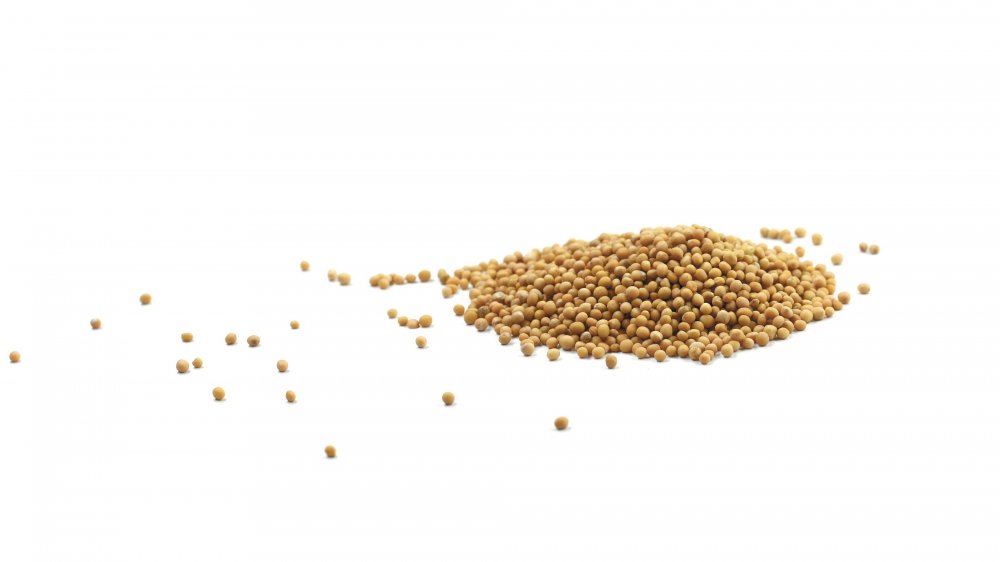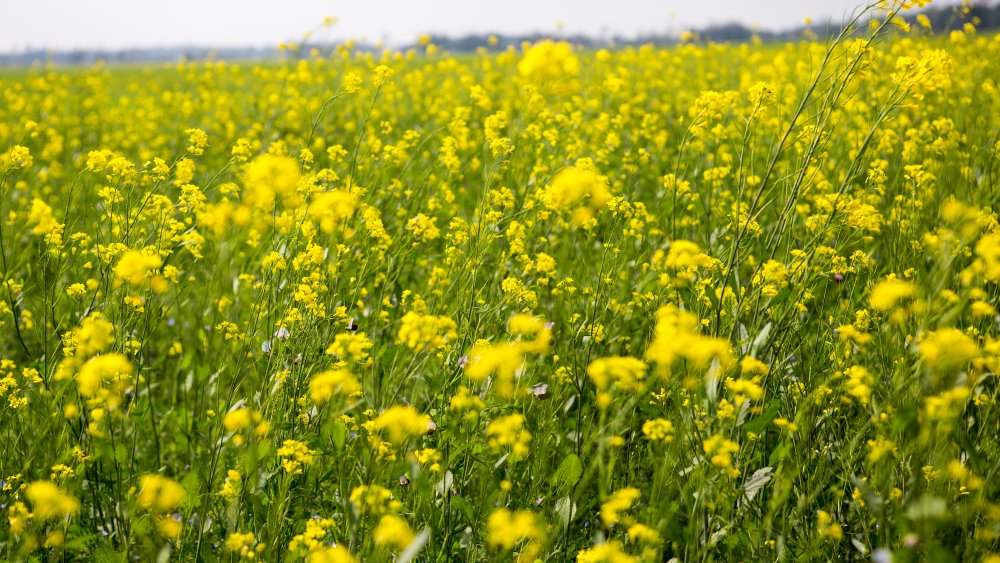The Real Reason Mustard Oil Is Banned For Cooking Purposes In The U.S.
Mustard oil is made by the pressing mustard plant seeds (via Healthline). Known for its pungent aroma and strong, spicy flavor, mustard oil often serves as an ingredient in curries and vegetable dishes in South Asia, where it holds a particularly special place (via Atlas Obscura). However, in the U.S., the Food and Drug Administration banned mustard oil because it contains erucic acid. It's also been banned in the European Union and Canada for the same reason (via The Times of India).
Erucic acid is found in plants that belong to the same family as mustard, such as the rapeseed plant (via Serious Eats). It can cause cardiovascular issues because it's a fatty acid which the body struggles to metabolize. In 2008, Food Navigator reported that high levels of erucic acid have been shown to cause fatty deposits in the heart muscles of animals. However, this effect hadn't been demonstrated in humans.
The problem with mustard oil
In the 1950s, when experimental evidence surfaced suggesting that erucic acid could pose a health risk, scientists from Canada started breeding rapeseed plants that produced less of the acid (via Serious Eats). By coupling this with a series of refining processes, the scientists came up with a safe rapeseed oil, which they christened "canola," whose name derives from the "can" in "Canada" and "ola," which stands for "oil, low acid."
While mustard oil created by pressing the seeds is banned for cooking purposes, the Food and Drug Administration does allow the use of what is called mustard essential oil, which is created by steam distilling the seeds. Though it comes from the same plant, it is distinct from mustard oil.
The oil is also used for massages and can be utilized as a natural mosquito repellant as well. Although you can purchase mustard oil (the pressed variety) in the United States, the FDA required that it be labeled "for external use only."

